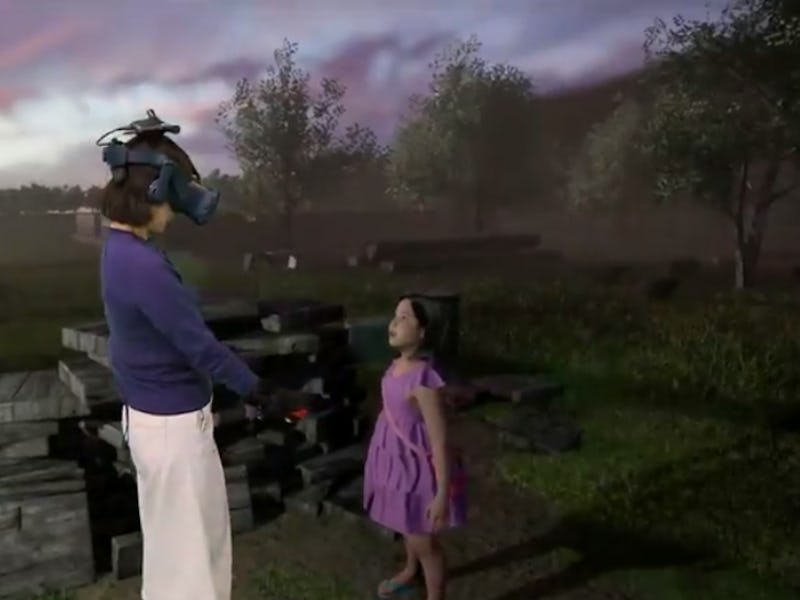VR reunites a woman with her dead daughter
VR therapy taken to a whole new level of customization.

Virtual reality can create a lot of cool moments in a wide variety of experiences, everything from gaming to exercise. But a new South Korean TV documentary, titled I Met You, offered a powerful glimpse into the therapeutic possibilities of VR: wearing VR goggles, the tearful mother of a dead child was able to interact with a facsimile of her deceased daughter.
The documentary, which aired on public broadcasting network MBC, featured a ten-minute segment on the temporary, technological reunification between a woman named Jang Ji-sung and her seven-year-old daughter, Nayeon, who died of a rare condition in 2016.
As far as virtual reality uses go, showing a parent realistic animations of a dead child is one fraught with the potential for missteps. But from the family’s perspective, it appears that the virtual reunion was a cathartic one.
"Maybe it's a real paradise," Jang Ji-sung, who is the mother of four children, says of the documentary, according to the Korean newspaper Aju Business Daily. "I met Nayeon, who called me with a smile, for a very short time, but it's a very happy time. I think I've had the dream I've always wanted."
The process of recreating Nayeon was as involved as any big budget animated film. The team behind the process spent eight months using previously filmed footage of the girl to recreate her face, body, voice, and movements. To capture her actions, the team employed a motion capture artist who reenacted several poses, including laying down on a bed, celebrating, The team set the reunion in a park that had emotional resonance for the two.
The reunion itself was emotional. As seen on the program, Nayeon calls out for "Mom" and asks, "Where have you been, Mom? Did you think about me?"
Jang instantly breaks down at the recreation of her daughter. “I do all the time.”
The two eventually hold a belated birthday party for Nayeon, where the virtual representation of the girl wishes for her mother to not cry. It’s a touching scene.
The documentary only adds to the idea that virtual reality can be used for psychological healing from trauma. The idea has been explored with former soldiers suffering from post-traumatic stress disorder, or PTSD. Last year, scientists asked soldiers suffering from PTSD to interact in a terrain almost as docile as Jang’s park: a supermarket called V-Mart. Scientists built V-Mart with the hopes that it could act as a PTSD assessment tool, and their initial focus group found it “highly usable, relevant, and acceptable.”
VR is also being explored for group dynamics, like creating chat rooms for those in rural areas with rare diseases.
The future of virtual reality and health probably lies more in the V-Mart and chat rooms than it does in Nayeon and Jang’s park. The level of customization of the latest required a huge investment, the type that likely needed the budget of a publicly-funded TV station like MBC to exist. Programs like the V-Mart offers more of a one-size-fits-all approach, which perhaps limits their usefulness but also allows a wide range of people to use them.
But even if it’s not the future, I Met You offered a powerful look into the potential healing power of VR. If you understand Korean, you can watch the entire documentary here.